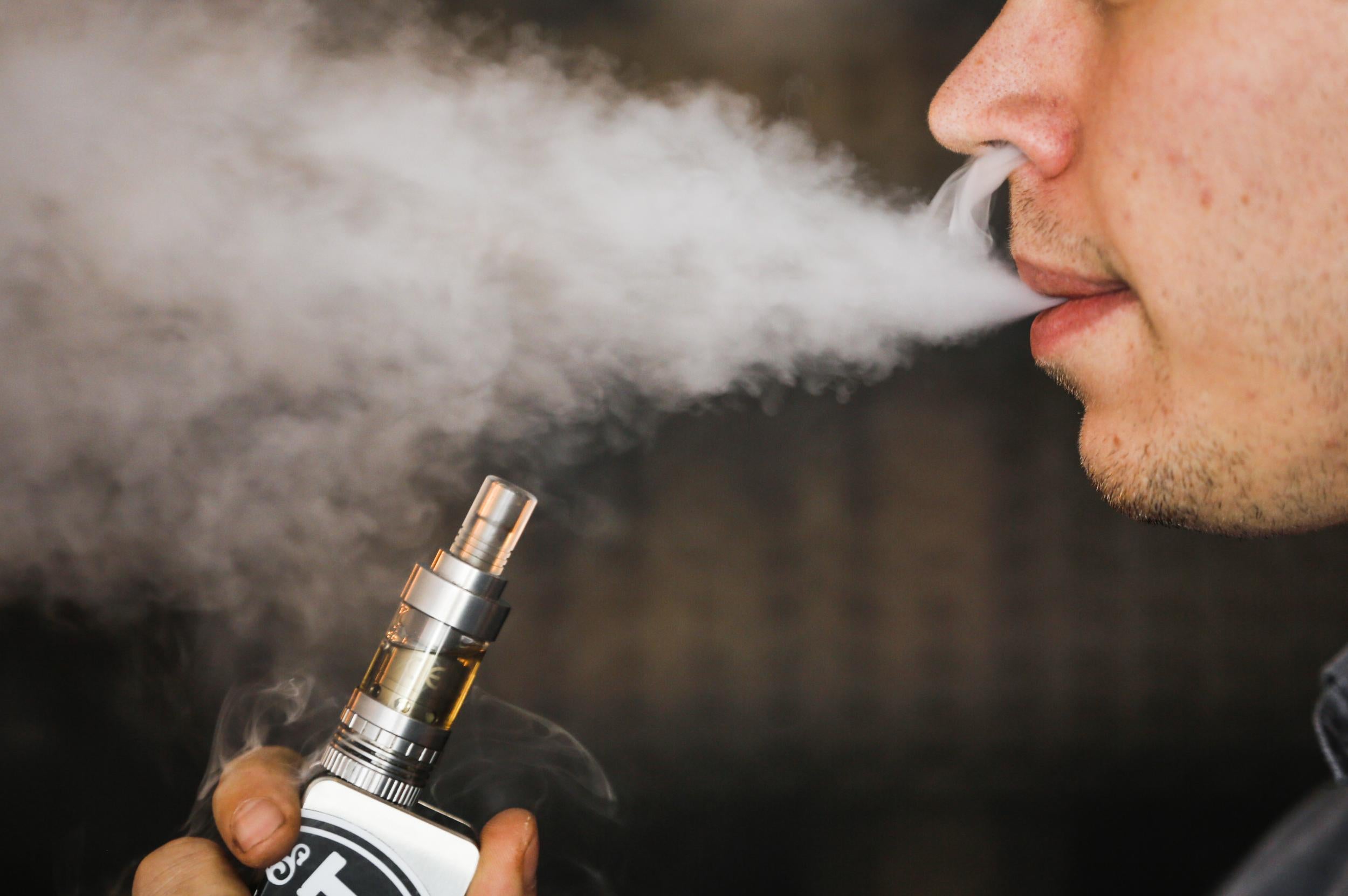FDA gives e-cigarette makers 60 days to prove how they will keep product away from children amid teen use 'epidemic'
The FDA says more than two million minors use e-cigarettes

Your support helps us to tell the story
From reproductive rights to climate change to Big Tech, The Independent is on the ground when the story is developing. Whether it's investigating the financials of Elon Musk's pro-Trump PAC or producing our latest documentary, 'The A Word', which shines a light on the American women fighting for reproductive rights, we know how important it is to parse out the facts from the messaging.
At such a critical moment in US history, we need reporters on the ground. Your donation allows us to keep sending journalists to speak to both sides of the story.
The Independent is trusted by Americans across the entire political spectrum. And unlike many other quality news outlets, we choose not to lock Americans out of our reporting and analysis with paywalls. We believe quality journalism should be available to everyone, paid for by those who can afford it.
Your support makes all the difference.The US Food and Drug Administration is considering a ban on flavoured e-cigarettes and has given manufacturers 60 days to prove the companies can keep their products away from minors.
The agency said the ban consideration was due to an “epidemic” of young people using the products, citing data that showed more 2 million middle school and high school students had used e-cigarettes in 2017.
Juul Labs Inc., Vuse, MarkTen XL, Blu and Logic are the top five companies making the e-cigarettes at issue.
Owning 72 per cent of the market and valued at approximately $16bn, Juul is by far the largest of the lot.
Its device, which looks like a flash drive, hit markets in 2015, comes with “pods” in eight flavours, and has dominated sales and apparently drawn the ire of the agency.
These have been seen as a healthier alternative to regular cigarettes, but have flavours like bubblegum and various types of candy which minors may find appealing.
Spokesperson for Juul Labs Victoria Jones said it would work with the FDA on its request and is committed to preventing underage use of its product, adding that "appropriate flavours play an important role in helping adult smokers switch”.
Users of e-cigarettes inhale less toxins than traditional cigarette smokers, but can take in far more nicotine, which is the additive that poses a real health threat to children because “the developing adolescent brain is particularly vulnerable to addiction,” the FDA said in a statement about the possible ban.
“Inevitably what we are going to have to contemplate are actions that may narrow the off-ramp for adults who see e-cigarettes as a viable alternative to combustible tobacco in order to close the on ramp for kids...It’s an unfortunate trade-off,” FDA Commissioner Scott Gottlieb said.
In his estimation companies like Juul have not done enough to keep their products away from minors and “treated these issues like a public relations challenge, rather than seriously considering their legal obligations, the public health mandate, and the existential threat to these products”.
Mr Gottlieb said the agency has also issued 12 warning letters to companies that the agency deemed as having deceptive marketing labels on e-liquids.
"We cannot allow a whole new generation to become addicted to nicotine," he said.
There were also 1,100 letters and 131 fines issued to retailers - including 7-Eleven convenience stores, chemist chains like Walgreens, and Shell petrol stations - about selling the e-cigarettes to those underage.
Join our commenting forum
Join thought-provoking conversations, follow other Independent readers and see their replies
Comments